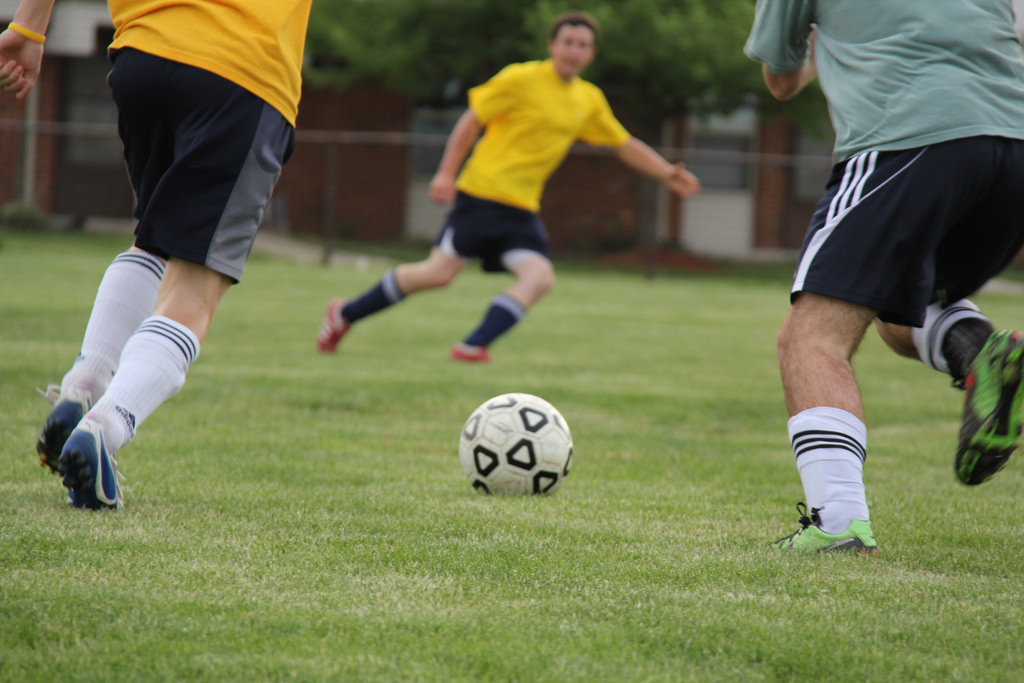When Andy Woodward, a former professional football (known as soccer in the USA) player, told the Guardian that he had been sexually abused as a child by former coach Barry Bennell, he can’t possibly have imagined the tidal wave of allegations that were to follow. In a matter of weeks, the police now report that 350 people have stated to them that they, too, were abused as children in football.
Now looking like a scandal that could mirror those surrounding Jimmy Savile or the Catholic Church, the reports of football abuse are gathering pace. The momentum generated reflects the previous scandals, where victims feel enabled by the outpourings of others to tell their own stories, many for the first time.
Can the police be trusted with these investigations?
17 police forces are currently investigating the abuse in football allegations, each prioritising identifying those offenders who may still be involved in youth football and who may still be a danger to children. All allegations will be investigated, the police say, but the volume of reports in such a short period of time mean some may come forward and have to wait for their claims to be looked into. The 17 forces involved equates to more than a quarter of all UK police forces, and numbers are likely to rise.
Greater Manchester police have already identified 10 suspects out of reports from 35 people.
Police forces around the world often have a poor reputation when it comes to dealing with historical child sexual abuse claims. Said to have improved throughout the Savile scandal, British police now have to prove themselves amongst a group of men who all have relatable experiences with a multitude of perpetrators across the UK. These men deserve to be believed, understood and treated with fairness and compassion.
In a statement, chief constable Simon Bailey said: “We continue to encourage those who have been the victim of child sexual abuse to report it, regardless of how long ago the abuse may have taken place. We will listen and treat all reports sensitively and seriously”.
Whether the police can achieve this without giving in to stigma or stereotypes remains to be seen.
Stereotypes about male victims of childhood sexual abuse
The Network of Victim Assistance reports the following stereotypes of male victims of sexual abuse:
- Men are immune to victimization.
- Men should be able to fight off attacks.
- Men shouldn’t express emotion.
- Men enjoy all sex, so they must have enjoyed the assault.
- Male survivors are more likely to become sexual predators.
Assumptions about masculinity and sexuality abound, with a presumed deficit of ‘manliness’ and implications of homosexuality applied to all victims and survivors. Where men who have been victimised are, indeed, gay or bisexual, this is frequently – and incorrectly – attributed to the abuse.
The police are not renowned for their positive treatment of victims of sexual abuse – of all genders – but the stereotypes above are those that frequently play into their treatment of male survivors. The same stigma is common amongst the general public and the media, and the survivors who are coming forward deserve better.
That is not what they got from former darts player and commentator, Eric Bristow.
In a rant on Twitter, Bristow asked his followers why victims of abuse did not “sort out” their abusers when they were “older and fitter”. Conflating gay people with perpetrators of abuse, he added, “Might be a looney but if some football coach was touching me when i was a kid, as I got older i would have went back and sorted that poof out”.
He later said he had meant ‘paedo’, not ‘poof’, as if that made anything noticeably better. He went on to delete his tweets and Sky Sports confirmed they would not hire him again to commentate on darts matches, following his tirade.
The strength of character and bravery of those who have spoken out, especially publicly to the media, have gone some way to cancel out attitudes like Bristow’s, but it is true that these stereotypes persist. When a survivor is taking the incredibly courageous step of coming forward and reporting to the police, the last thing they need is ignorance and prejudice combining to create attitudes like these.
What’s next?
The National Society for the Prevention of Cruelty to Children (NSPCC) has launched a new, dedicated helpline for victims of abuse in football. They report that it received 860 calls in its first week of operation. The 350 people who have already spoken to the police are likely to be a drop in the ocean compared to the actual number of boys and girls who were sexually abused during football training or events in their childhood, and the police, helplines and support organisations need to prepare for a potential influx in requests for support, legal help and prosecutions.
Football authorities have also spoken out and stated that anybody – or any football club or association – that has been involved in a cover up of childhood sexual abuse or abusers will be identified and treated appropriately, including being prosecuted if possible. A review has been instigated, and “any breach of [our clear rules] – and hushing up would be one – subject to due process”.
Photo: Maggio7/Creative Commons

